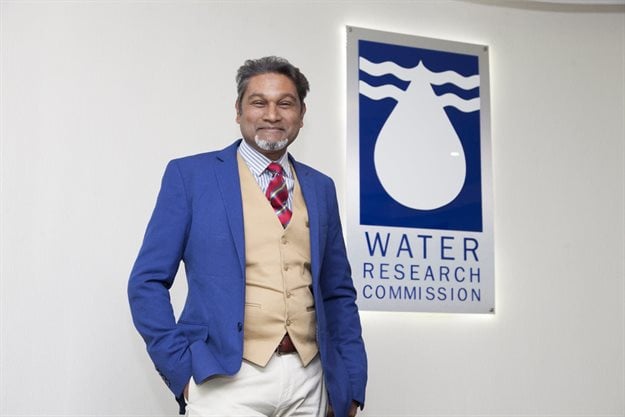The 18th Nelson Mandela Annual Lecture by UN secretary-general Antonio Guterres was sobering. Even in the wake of an unprecedented global pandemic, combined with the most difficult economic outlook since the height of the Great Depression, our greatest challenge in 2020 is inequality. It is significant to note that using the Gini coefficient as a measure of income inequality, South Africa is the second most unequal society in the world, behind Lesotho. The richest 10% of South Africans own 71% of the wealth, while the poorest 60% own only 7%. This income inequality is further segmented on the basis of race, gender, ethnicity, urban vs rural location and levels of disability. This is the core of our current adversity.

Dhesigen Naidoo, CEO of the Water Research Commission and president of Humanright2water
But adversity has always been a theatre for invention and innovation. Madiba’s story of leadership of the liberation movement, as well as that of inaugural president of democratic South Africa, has been a series of brave decisions which almost always went against the status quo and the norms of the time. From the moment of supreme leadership after the Boipatong massacre to taking the stage in a transitional moment at the 1995 Rugby World Cup final, it has been innovation. When Mandela and his water minister Kader Asmal introduced the notion of water as a basic human right in 1996, they stimulated a global momentum that resulted in the United Nations adopting resolution 64/292 on 28 July 2010, recognising the human right to water and sanitation.
Clean water, safe sanitation
It is in this spirit of innovation that we must engage the instruments of recovery and redress simultaneously - one of the more important being the UN SDG 6 Global Acceleration Framework. The UN system led by UN Water has launched this as the principal strategy vehicle to achieve universal access to clean water and safe sanitation by 2030. The five pillars of the framework include the familiar and much needed drivers of success, namely finance, governance and capacity. The two further drivers are what puts this initiative firmly into the 21st century – data and information, and innovation.
In the spirit of Mandela’s legacy, we need to embrace and harness the vast knowledge repository of the South Africa water science and technology sector, whose excellent research efforts have ensured that the country continues to be in the top 20 of research performers in this domain, in the world. We are currently witnessing this in the WRC-SALGA-led partnership of networks on Covid-19 wastewater surveillance, building on recent global leadership in developing an ISO standard for non-sewered sanitation. The significance of introducing non-sewered sanitation can be revolutionary in moving forward in this component of SDG 6 and is proving to be the most challenging. Non-sewered sanitation and low water use toilets are recognised as the world’s best pathway to reach the goal of universal access to safe and dignified sanitation in ten years.
Putting our best technology foot forward
This noble venture of putting our best technology foot forward, supported by the strengths of big data management and intelligent control systems to meet the SDGs, as well our basic needs agenda, has a very important upside beyond the social agenda. It can be an important component of South Africa’s economic recovery in the short term with the exciting possibility of new industrial platforms in the long term. These products emanating from new industrial platforms for water, wastewater and sanitation solutions with applications across all sectors will create jobs, develop enterprises and very positively impact both the technology balance of payments as well as the trade balance.
This principal challenge with South Africa’s extreme inequality is based on the older notion that we have two distinct economies operating in the system. The wealthier among us are international, operating as significant players in the global economy, while the vast majority of South Africans operate on the margins of the breadline with increasing numbers joining this cohort during the Covid-19 lockdown, as evidenced with the increased claims for economic rescue.
Transformative, catalytic innovations
These new industrialisation opportunities on the back of new innovations in water and sanitation can be transformative and catalytic. It holds promise for an acceleration in economic recovery while simultaneously creating more opportunities for new entrants to the economy which will have a positive impact in decreasing inequality, moving closer to eradicating poverty and creating better chances for sustainable livelihoods.
There are many reasons why this journey will be difficult, but let us be reminded by the wise words of our founding president – “It always seems impossible, until it is done.”





































